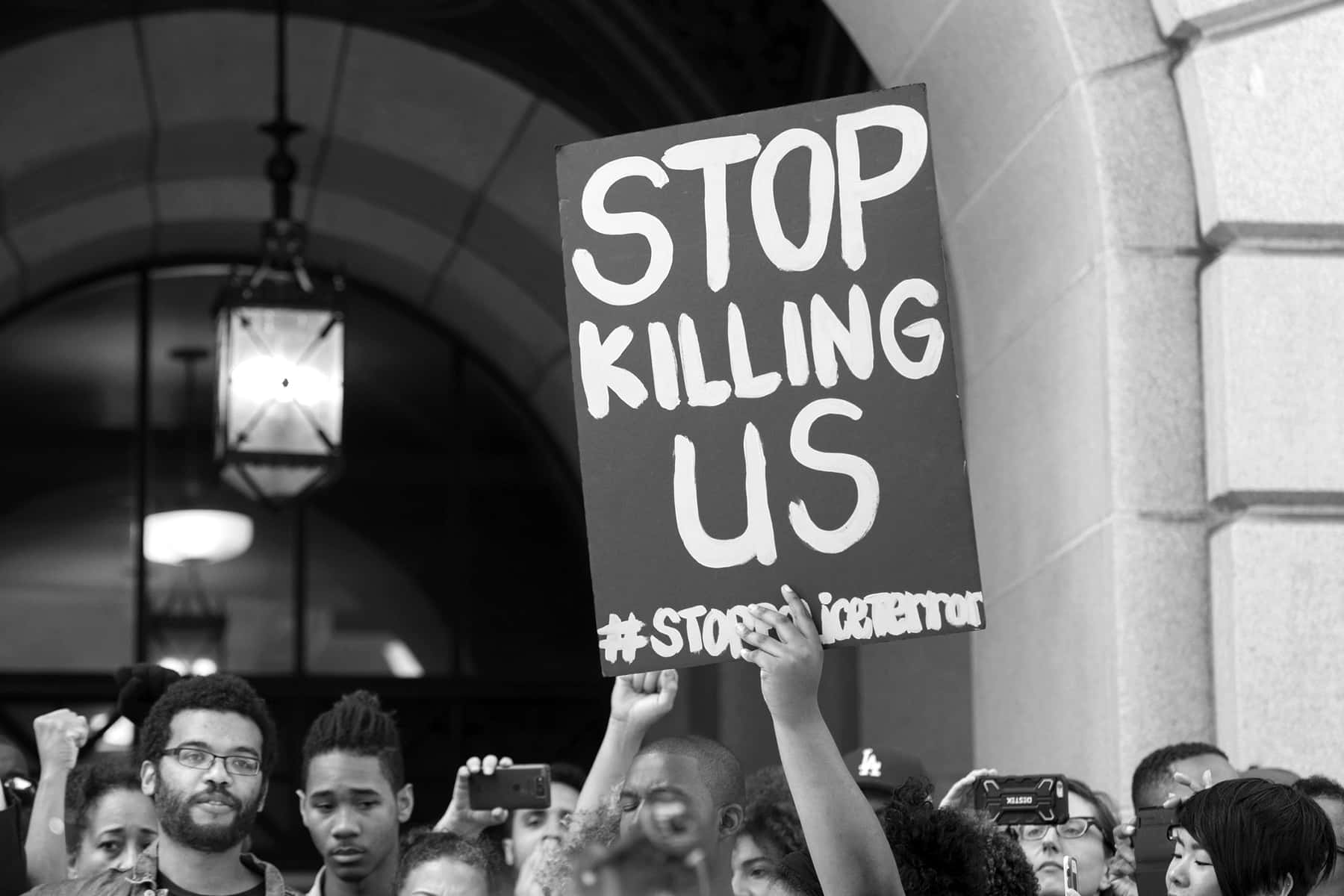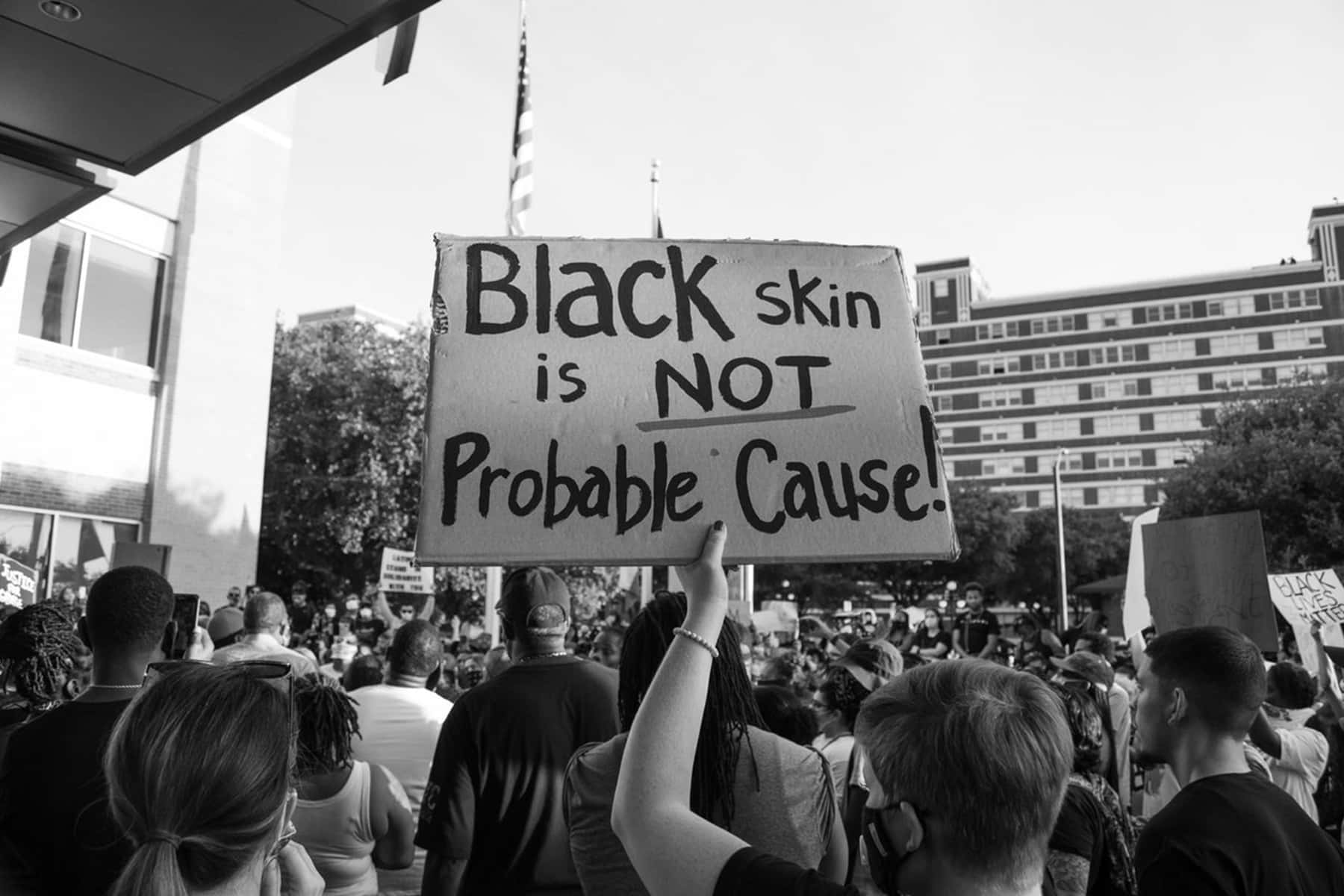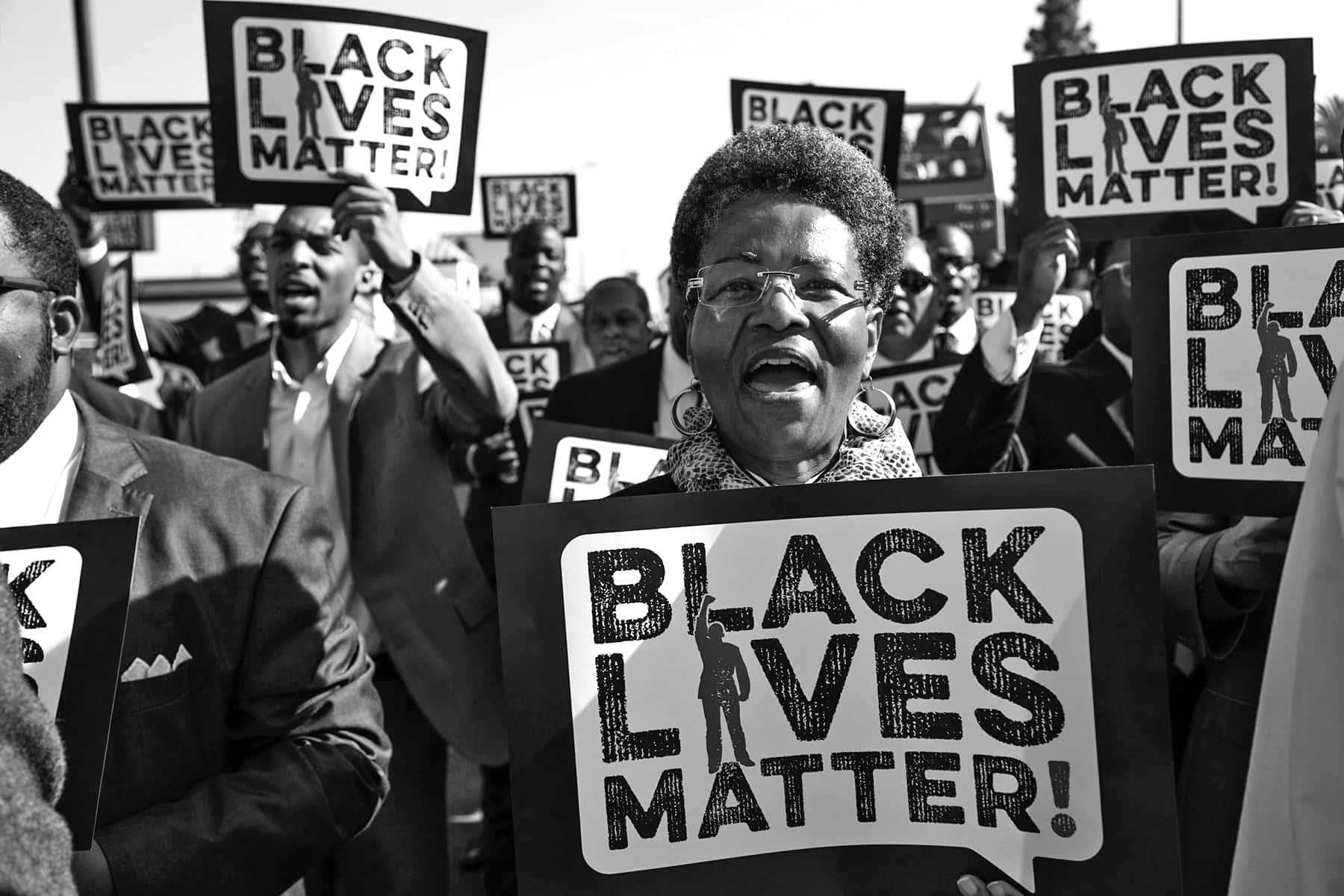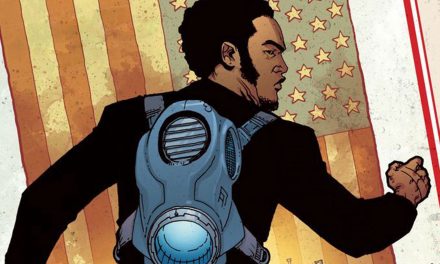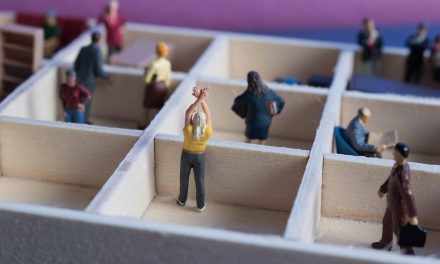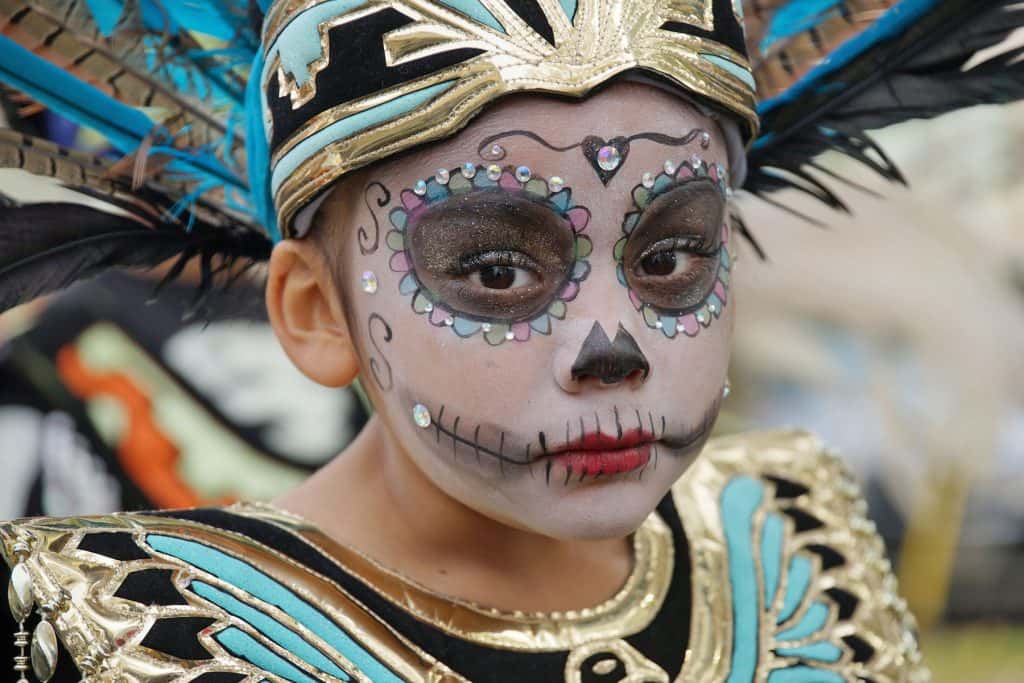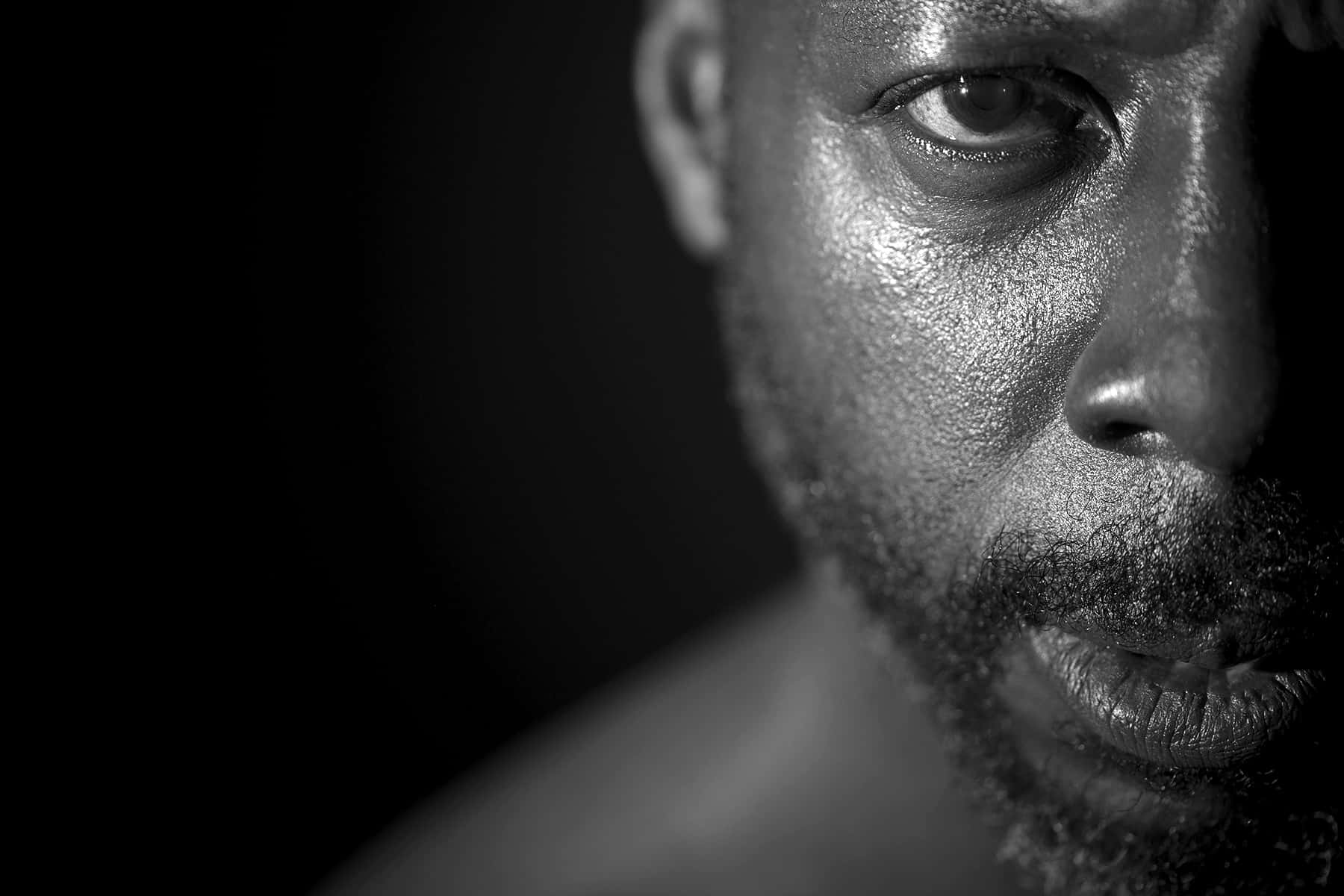
“The systemic targeting of and use of unnecessary force against people of color is woven into the fabric of our law enforcement institutions and stems from the legacy of slavery and Jim Crow in this country.” – John Gordon, Minnesota ACLU Director
Protests over the death of George Floyd go into their eighth day. Cities across America enforced curfews deployed both national guard and police in heavily armed gears to control protesters.
Floyd, a Black man, was killed while in police custody in Minneapolis on May 25th. A video captured by onlookers showed a White cop kneeling on Floyd’s neck as he, unarmed lay handcuffed crying out that he could not breathe.
The police officer, Derek Chauvin, has been charged with murder four days after folks across the country called out for his arrest and prosecution. On May 29th a criminal report later found that Chauvin had his knee on Floyd’s neck for eight minutes and 46 seconds, as well as roughly three minutes after Floyd was unresponsive. Chauvin including the three other officers involved in the incident have since been fired.
The riots and protests against police brutality that have broke out across the country emulate past reactions following the killing of Eric Garner in 2014. Garner, also a Black man died in the hands of police after being choked by a White police officer in New York City. Garner’s cry, “I can’t breathe,” became a slogan for the Black Lives Matter movement.
Prior to the killing of George Floyd the nation had already been in outrage over the death of Ahmaud Arbery, a young Black jogger in Georgia who was shot by two armed White men who followed and killed him as well as Breonna Taylor, a 26 year old Black woman killed in her apartment as Louisville officers were searching for a man who did not live there.
Because of the systemic racism in this country these cases are not new to us. The death of unarmed Black men and women are consistently smeared on headlines leading to no type of justice for victims of these horrendous cases, nor to their families even with evidence of justifiable prosecution. We’ve seen this play-out for years especially in high profiled cases such as the killings of Trayvon Martin, Tamir Rice, Sandra Bland, Mike Brown, Walter Scott and countless others.
According to Mapping Police Violence, in 2019 police killed 1,099 people in the United States. The statistics showed that Black people were three times likely to be killed by police than White people and that Blacks were also 1.3 times more likely to be unarmed compared to White people. Of those cases ninety-nine percent of killings by police from 2013-2019 resulted in no type of charge with a crime. This is outrageous.
There have been thousands of cases relating to police violence and still no type of change in law enforcement policy has occurred as a result to date?
These are undeniably difficult stats to swallow. Also, the simple fact that there is an organization dedicated to collecting abhorrent crimes like these is indisputably a tremendous problem. This in itself is an obvious indicator of that, yet our government and law enforcement agencies see no reason to enforce changes.
There needs to be an end to this. Immediately. We can’t afford to lose more lives. We are tired of remembering names, signing petitions calling for prosecutions, and constructing hashtags. It needs to end now. The government needs to act now. Plain and simple.
Racial injustice continuously plagues this country beyond police brutality as it has been for hundreds of years. Hence why it’s often referred to as “our nation’s oldest sin”. From White women falsely accusing Black men of misconduct, racial profiled-related attacks on Black people to the systemic institutions that do not hold law enforcement officials accountable for the arrest of a Black news reporter doing his job, even when cooperating with officers.
The reality is this. Racism will take a long while to end, but this country can take action steps at this very moment to rid of institutionalized racism. In order to do that the nation as a whole must see it as a problem, including those we elect into offices who have the capability to pass laws that hold people and institutions who commit these acts accountable.
Until this is done, we will routinely hear more cases of lives lost, people wrongfully accused as a result of systemic racism, unfortunately.
So how do we end racial oppression within our justice system not just systemic racism, you ask? Well, there are multiple solutions to this—one solution isn’t enough to annihilate this crisis.
Here is how we combat this issue which several activists and organizers have echoed for decades.
In propelling radical change, we must pressure our legislators to act now and create a bi-partisan bill that becomes law, stating law enforcement officials’ use of unnecessary force against civilians is outlawed. This should include the use of chokeholds, shooting unarmed individuals committing no harm to a police official.
Police should only be allowed to use their gun when dealing with individuals who are armed and dangerous. This bill should also abolish the “no-knock warrant” which allows law enforcement officers to enter premises without first knocking or announcing their presence. Such actions have led to the wrongful deaths of many innocent individuals including Louisville resident, Breonna Taylor just recently in March.
This bill needs the cooperation of both civil rights activists and organizers across the country who have been advocating and doing work around criminal justice as a means of effectively coming up with practical resolutions to end police brutality once and for all.
There also must be a system in place for police accountability. Officers should not be enabled to feel as though they are above the law. There needs to be a policy in place for law enforcement of all levels to face consequences for their callous practices. This means firing an officer from his or her position shouldn’t be a sole punishment–after all many will still be able to acquire other careers.
Additionally, many young people have to fully understand the importance of voting. This is fundamental in producing radical change. Young people must vote. They have to familiarize themselves with the offices and officials in charge of making decisions for them. When voting, young voters need to do thorough research on candidates running for office. Then vote for candidates who call for policies they align with. They should not merely vote according to partisan affiliation.
Also, Black people as well as other folks of color must run for offices and take up crucial seats especially those that impact our justice system such as district attorney, judge, attorney general, and supreme court, if they want to resolve issues that affect them directly.
Protesting, a swipe up, a share, and donation aren’t enough. We must follow-through with policy change and legislation in all levels: from federal, state, to municipal.
“People always say the same thing: If you didn’t do that, you’d still be alive. They say this shit all the time: ‘If you didn’t do that…’ But the truth is, the ‘ifs’ keep on changing. If you didn’t resist arrest, then you’d still be alive. Or if you didn’t run away from the cops, you’d still be alive. Well, if you didn’t have a toy gun and were 12 years old in the middle of a park, then you would have still been alive. Well, you know what, if you weren’t wearing a hoodie, then you would have still been alive. If you didn’t talk back to the cops, you would have been still been alive. If you weren’t sleeping in your bed as a black woman, you would have still been alive. There’s one common thread beyond all the ‘ifs.’ If you weren’t black, maybe you’d still be alive.” – Trevor Noah
Zeynab Ali
Originally published on zeynabula.com as “Stop Killing Us”: The ongoing battle against racial injustice in America
Originally launched in 2014 as her blog “Informed,” Zeynab Ali recently rebranded her personal communications platform as Zeynabula. As an author and community advocate, the Kenyan-born Somali resident of Milwaukee wanted to expand the topics she wrote about. In addition to her love of books, the platform offers Ali with the chance to express her ideas about philanthropy and a vision for establishing a more productive society. This essay was written recently, after protests began over the death of George Floyd. Her other work can be viewed at zeynabula.com

